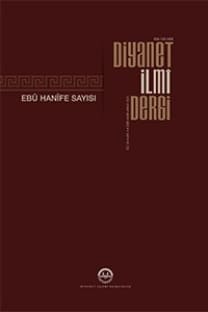ÂSIM KIRÂATININ HAFS RİVAYETİNE GÖRE SEKTE KAVRAMI VE MANAYA ETKİSİ
Sekte, Kur’an kıraati sırasında iki ses arasında nefes almadan sesi ayırarak kesmeye denir. Sesin kesilme süresi ise okuyuş tarzına göre değişmekle birlikte yaklaşık bir elif miktarı kadardır. Âsım kırâatının Hafs rivâyetine göre; Kur’an-ı Kerim’de dört yerde sekte vardır. Kur’an’daki alameti ise üzerinde sekte yapılmak istenen kelimenin son harfi üzerindeki küçük bir sîn (س (harfi yazılmasıdır. Sekte hem mana hem de Kur’an’ın fonetik yapısı ile irtibatlı bir kuraldır. Hangi seslerin uzatılacağını, telaffuzun nerelerde kesileceğini sistemli bir şekilde öğreten tecvid ilminin kaideleri, Kur’an-ı Kerim’in doğru okunması adına aynı zamanda fonetik tesir yapar. Diğer taraftan vasıl hâlinde yanlış anlaşılmaya müsait kelime gruplarını fark ettirerek ayırt etme ve verilmek istenen gerçek mana üzerinde vurgu yapma adına da önemli bir vazife yapmaktadır
SAKTAH ACCORDING TO HAFS’ REPORT OF ASIM RECITATION
AND ITS EFFECT ON MEANING
Saktah is discontinuation of two voices by separating without breathing between them during the Qur’an recitation. Although it is variable according to recitation styles, discontinuation time of voice is about the measure of one alif. According to Hafs’ report of Asım recitation, there are four saktahs in the Qur’an. The sign of saktah in the Qur’an is to write a letter sîn (س (on the last letter of the word which is saktah required. ‘Saktah is a rule connected with both meaning and phonetic structure of the Qur’an. Rules of tajweed teaches sistematically which sound would be extended and where pronunciation would be interrupted. This effects reading the Qur’an correctly and phonetically at the same time. On the other hand, it has an important task regarding to emphasis on the true meaning of words which can be misunderstood when it was passed without stoopping.
